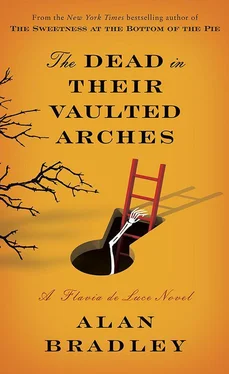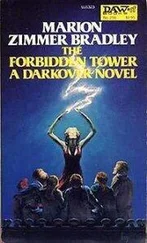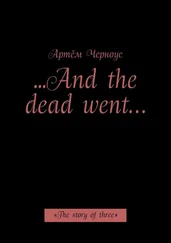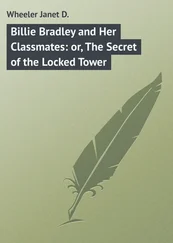His wife was gone, his house and estate as good as gone.
None of us were so simpleminded as to think that the moment the funeral was over, the anonymous buyer who had made the sole humiliating offer for our estate would not be pounding at the door.
We would be homeless.
For the first time in its long history, Buckshaw would not be in the hands of a de Luce. It simply didn’t bear thinking about.
I was now at the connecting door to Harriet’s boudoir. I put my hand against the green baize and pushed softly.
The door swung open without a whisper.
Inside, a single candle flickered at the head of the catafalque.
Father was kneeling on the prie-dieu, his face buried in his hands.
Dare I?
Putting each foot down as if I were treading on broken glass, I began making my way across the room.
As one always does in dangerous circumstances, I counted my steps:
One … two … three … four—
I stopped. If Father lowered his hands and opened his eyes I would be plainly visible. The flickering light made my shadow dance faintly on the velvet hangings, black on black.
Five … six …
I reached out and touched the pall, squatted.
My knees gave off an alarming crack.
Father’s fingers dropped and his eyes shot open. He was looking to the right of where I was now crouching. He cocked an ear, turned his head towards the door, then evidently decided that the noise had come from the candlewick. Or perhaps cracking wood.
He gave a heartrending sigh and lowered his face again into his cupped hands.
He began whispering something, but I could not make out his words.
Was it the Lord’s Prayer?
I didn’t wait to find out. His own whispered words would be masking whatever small sounds I might make.
I stuck my hand under the hem of the pall, moved it ever so slowly from side to side, feeling with my fingers for the coal scuttle.
A slight click from my nails told me that I had found it.
I made my fingers walk like spider legs, up the side of the scuttle, over the lip, and down into its depths.
I stifled a sigh of relief as my fingers touched the oilcloth packet.
It was still there! The men from the Home Office had obviously been so preoccupied with their task that they hadn’t wanted—or hadn’t thought—to search the room.
Slowly—ever so slowly—I lifted the wallet clear of the metal coal scuttle, taking great care to not make the slightest scraping. I pulled it out from under the velvet drape and, concealing it with my body, began creeping like a slow crab towards the door.
But wait! The alarm clock!
I could hardly leave the thing behind in the coal scuttle! One coal scuttle was as anonymous as another, but the brass alarm clock was uniquely mine.
Back I crawled, delving again in the near-darkness into the scuttle’s depths. If I touched the wrong thing and the alarm went off, I was done for.
It was like defusing an unexploded bomb. I had to rely on my sense of touch alone.
Slowly … painfully … carefully I raised the clock from its tin tomb.
The silence was so excruciating I wanted to scream.
But a few moments later, I was on my way to the door again.
If Father discovered me now, I decided, I would pretend I had just come in to keep him company. He could hardly object to that.
But he didn’t move a muscle. When I looked back from the doorway, he was still on his knees, his back ramrod straight, his head bowed, and his face pressed into his hands.
It was a picture of my father that I would never forget.
I closed the door gently, passed quickly through his bedroom, and slipped into the hall.
Moments later I was back in my bedroom.
The clock showed 4:18.
It had taken me just sixteen minutes.
Sixteen minutes? It had felt like sixteen hours.
Somewhere a WC flushed and the ancient water pipes gurgled and clanked like chains in a distant dungeon. Buckshaw was coming awake.
In precisely ten hours, I would be arriving at St. Tancred’s with my family for my mother’s funeral.
It seemed incredible.
For as long as I could remember, I had lived in a world in which a missing mother was a somewhat exotic fact of life. But all of that was now about to change.
From this day forward, I would be a girl—and presumably someday a woman—whose mother, like everyone else’s who has ever been bereaved, lay in the village churchyard.
Nothing romantic about that.
I would be just another quite ordinary person.
And there was nothing I could do about it.
TWENTY
THE BEDROOMS AT BUCKSHAW, as I have said before, were like vast, damp zeppelin barns, especially those in the east wing where the loosened, water-stained wallpaper bulged from the walls in the form of wind-filled sails. Some of the rooms possessed papered ceilings that drooped overhead in musty, sagging bags like lowering thunderclouds, except that they were green.
No one ever came here, and even I had only once or twice peeked into the moldering bedchamber at the northeast corner of the house, which, for some long forgotten reason, had always been known as “Angels.”
There was nothing angelic about it: “Mushrooms” would have been a far more appropriate name. I knew for a fact that parts of the room glowed in the dark due to the bioluminescence of the various fungi that were happily eating away at the rotting wooden paneling which lay beneath.
The lighted candle I had brought from the laboratory guttered and spat in the drafty corridor.
The rusty doorknob gave a fiendish squeak, which was closely followed by a wooden groan as the door swung slowly inwards.
The pong of the place struck my nose like a blow from a boxing glove. I would have to work quickly.
I reached for a Louis-the-something chair, but it crumbled at the touch of my hand, as did a Victorian chaise longue, which, when I accidentally kicked it, collapsed in a shower of dust and woodworms. I knew that I had no choice but to return to my laboratory for something sturdy enough to stand on.
Esmeralda shifted impatiently from foot to foot as I threw into a petri dish a handful of feed, which she fell upon with the ferocity of a famished Tyrannosaurus rex , one of her early ancestors.
“Manners,” I reminded her, as I seized a tall laboratory stool and left her to her breakfast.
Back in the room called Angels, I placed the stool near the fireplace, directly in front of an angled and jutting section of the wall that had something to do with the chimney, which lay hidden beneath. The spot was more damp than I should have liked, but it was the only part of the upper wallpaper that was within my reach. The oilcloth wallet, though, would be more than protection enough for the short time I planned on leaving it there.
I won’t pretend I wasn’t tempted to read Harriet’s will, but I also knew instinctively that it would be wrong: an unforgivable invasion of Harriet’s and Father’s privacy that could never, ever be explained away. And besides, there wasn’t time.
When I had slid it into an ancient rip in the wallpaper, it was no more than just another bulge in a room full of bulges: safe from the Home Office, safe from the police, safe even from my own family.
As I climbed down from the stool, I noticed the marks its legs had left in the dust on the floor—to say nothing of my own footprints.
Even Inspector Hewitt’s men, Detective Sergeants Graves and Woolmer, would have been able to tell at a glance that someone in Flavia-sized shoes had stood on a four-legged stool in that very spot, and could probably even have made a fair guess as to how far up the wall I had been able to reach.
I hadn’t the time to find and scatter fresh dust to cover my tracks, which left only one option: I would make even more of them.
Читать дальше












